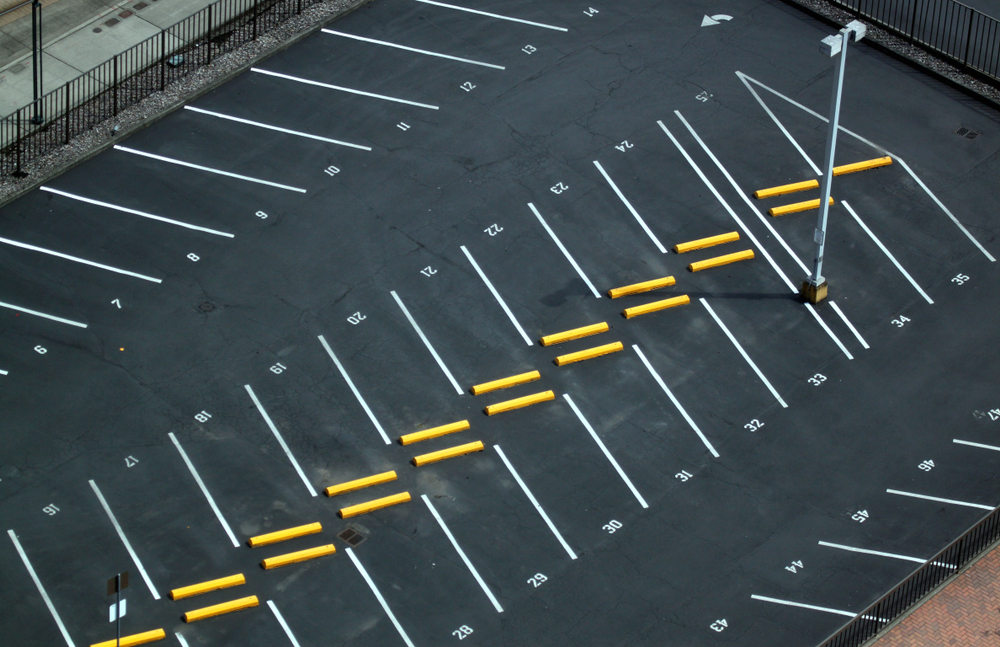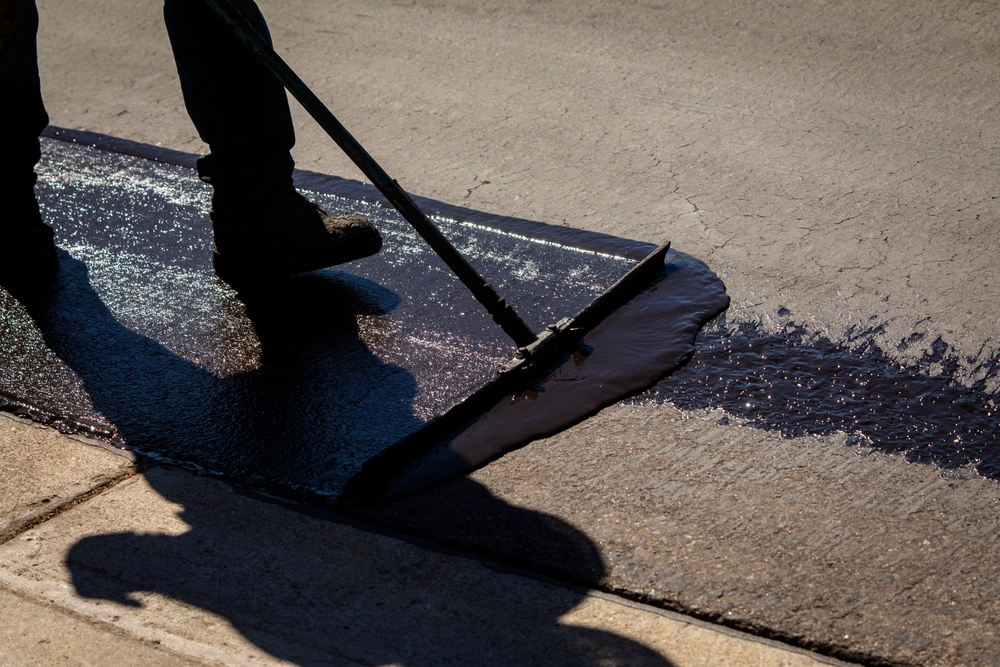You just had a fresh new asphalt driveway paved. It looks amazing, but how long after paving can you park on it? I know you’re probably eager to get back to your normal routine, but this waiting game is crucial. Parking too soon can lead to unsightly tire marks, depressions, and even cracks in your beautiful newly paved surface.
Trust me, I get it. You’re probably already picturing how sleek your car will look on that smooth black asphalt surface. But patience is key here, my friend. It’s all about understanding the science behind asphalt curing and how long after paving you can park on it.
Love Paving LLC is a paving company in Cherry Hill that offers free on-site consultations and 1 year material warranties on all jobs, give us a call today!
Why the Wait? Understanding Asphalt Curing
You see, asphalt isn’t just poured and done. The asphalt pavement takes time for it to harden and cure properly. This curing process, the time it takes for the liquid asphalt to solidify and become durable, is vital for its longevity. Think of it like baking a cake; you wouldn’t take it out of the oven before it’s had a chance to set, would you?
Drying vs. Curing: What’s the Difference?
Many people confuse drying time with curing time. While your newly installed asphalt driveway might seem dry to the touch within a day or two, this only means the surface water has evaporated. Curing, on the other hand, is a much longer process where the asphalt dries.
During curing, the liquid asphalt binder hardens and binds the aggregates (rocks and sand) together, making the paved asphalt strong and resilient. The amount of time it takes asphalt to cure will determine how long after paving you can park on it.
So, How Long After Paving CAN You Park on It?
I know that’s the million-dollar question. As a general rule of thumb, most paving contractors recommend waiting at least 72 hours (3 days) before allowing any vehicle traffic, including parking, on your new asphalt driveway. However, several factors can influence this timeline.
Factors Affecting Curing Time:
- Temperature: Heat plays a major role in the curing process. Higher temperatures accelerate drying and curing, but extremely hot weather can also make the freshly laid asphalt more susceptible to damage from heavy loads. For example, during scorching summers (temps can get seriously high, believe me) a newly paved driveway might need an extended curing period, even up to 7 to 14 days. These high temperatures in the summer months are definitely something to keep in mind when determining how long after paving you can park on it.
- Asphalt Mix: The specific type of asphalt mix used in your freshly paved driveway can also impact curing time. Some mixes contain additives that modify the curing process.
- Thickness: Thicker asphalt layers generally require longer curing times compared to thinner layers, because there’s more material that needs to completely dry.
Parking Heavy Vehicles on Your New Asphalt
Now, this is where it gets even trickier. If you own heavy vehicles, you’ll need to be even more careful about how long after paving you park on it. The weight of a heavy truck, RV, or camper can leave those dreaded indentations in fresh asphalt and create sharp edges.
It’s best to consult your paving contractor for specific guidance. They know the exact composition of the asphalt used, the climate conditions, and other variables that can impact the curing time. But as a precaution, it’s a good idea to avoid parking heavy vehicles on your new driveway for at least 14 days, and even longer during very hot weather. Waiting longer will allow the asphalt to fully cure and harden properly. This will ensure the weight of heavy vehicles won’t cause any damage and will prevent damage to your newly installed asphalt. How long after paving you can park on it will vary depending on these factors.
Protecting Your Investment: Asphalt Care Tips
Getting a new asphalt driveway is an investment. To avoid damaging your asphalt driveway, follow these simple tips. These simple tips will help protect your investment.
| Asphalt Care Tips | Description |
|---|---|
| Prevent Cracks and Damage | We get it–you want to keep your new asphalt looking pristine, so don’t park in the same spot every single day. Why? Well, the constant weight concentrated in one area can lead to depressions and affect the levelness of your driveway, especially if the asphalt has not had adequate time to cure. You will want to wait longer in these situations. How long after paving you can park on it in the same spot is usually around 30 days. |
| Sealcoating: Your Asphalt’s Best Friend | Driveway sealcoating is one of the best things you can do to protect your investment. Not only does sealcoating give your driveway that rich black color, it acts as a protective barrier. A seal coat guards your driveway against the elements, UV rays from the sun, rain, snow, even those pesky oil spills from your car. This will allow the asphalt to adhere properly. |
| Tackle Those Cracks Early On | Small cracks in asphalt driveways are pretty common. If the crack is less than one inch wide, you can pick up some asphalt crack filler at your local home improvement store. Be sure to address cracks sooner rather than later to prevent water infiltration. Prevent damage and address these cracks before they become bigger problems. |
Can I walk on my new asphalt driveway right away?
While you should avoid parking cars and avoid driving on it, walking on your new asphalt driveway after 24 hours is usually fine. Just avoid wearing shoes with sharp heels that might leave scuff marks on the soft surface.
How can I tell if my asphalt is cured enough for parking?
One visual cue is to check for tire marks. If your tires leave visible indentations, your driveway probably needs more time to cure. Turning wheels on fresh asphalt can also create indentations and should be avoided.
What happens if I park on my asphalt driveway too soon?
Parking on your new driveway too early, especially with heavy vehicles, can lead to depressions, tire marks, and even cracks in the asphalt pavement. These imperfections can be costly to repair.
Conclusion
Knowing how long after paving you can park on it really comes down to understanding the factors that influence curing time. While waiting those extra few days or even a week might seem like a drag, it’s a small price to pay for ensuring your new asphalt driveway looks its best and lasts for years to come. By exercising patience and following these care tips, you can keep that smooth blacktop looking pristine.




